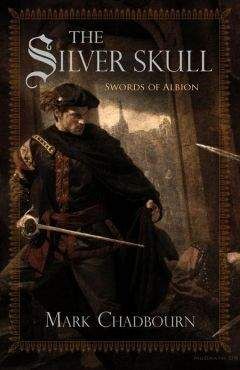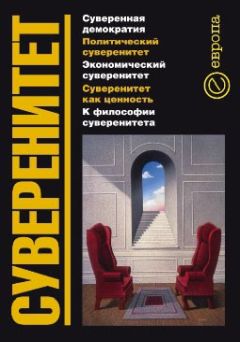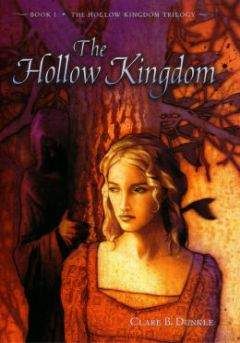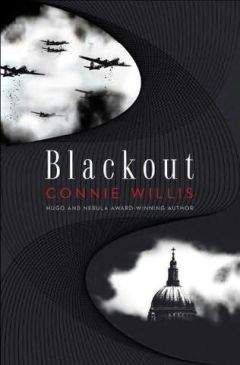В. Каушанская - Сборник упражнений по грамматике английского языка
И расчищенные аллеи небольшого парка, и возрожденное заботливыми руками советских людей здание, разрушенное во время войны фашистскими варварами, — все говорило о том, с каким большим уважением, с какой любовью относится наш народ к великому культурному наследию прошлого.
Тысячи восторженных записей рабочих, колхозников, ученых, военных, артистов, студентов, тысячи взволнованных и благодарных слов, воздающих дань замечательному композитору, автору великих симфоний и любимых народом опер, находим мы в книгах отзывов посетителей Дома-музея П. И. Чайковского.
Но не только в этом дань любви великому композитору. Память о нем увековечена живыми делами. Часто тишину музея нарушают звонкие детские голоса. Это приходят сюда маленькие музыканты — питомцы клинской музыкальной школы, носящей имя Чайковского.
В этой школе создалась трогательная, полная глубокого значения традиция: каждую весну, по окончании учебного года, маленькие музыканты собираются в Доме-музее. П. И. Чайковского. В священных стенах небольшого дома они, юные наследники великого композитора, показывают свои успехи на трудном пути к музыкальному мастерству. И вот в строгой тишине музея раздаются глубокие, бархатные звуки виолончели, проникновенные звуки скрипки. Играет ученица по классу скрипки Нина Ковалева. Ей еще не удержать инструмента полного размера, ее скрипка — недомерок, но из-под смычка ее льются звуки неаполитанской песенки Чайковского.
THE COMPOUND AND THE COMPLEX SENTENCE
Exercise 1. Point out ihe coordinate clauses (mark the elliptical ones) and comment on the way they are Joined.
1. It was high summer, and the hay harvest was almost over. (Lawrence)2. All the rooms were brightly lighted, but there seemed to be complete silence in the house. (Murdoch)3. One small group was playing cards, another sat about a table and drank, or, tiring of that, adjourned to a large room to dance to the music of the victrola or player-piano, (Dreiser)4. His eyes were bloodshot and heavy, his face a deadly white, and his body bent as if with age. (Dickens)5. He only smiled, however, and there was comfort in his hearty rejoinder, for there seemed to be a whole sensible world behind it. (Priestley) 6. You'll either sail this boat correctly or you'll never go out with me again. (Dreiser)7. Time passed, and she came to no conclusion, nor did any opportunities come her way for making a closer study of Mischa. (Murdoch)8. She often enjoyed Annette's company, yet the child made her nervous. (Murdoch)9. She ran through another set of rooms, breathless, her feet scarcely touching the surface of the soft carpets; then a final doorway suddenly and unexpetedly let her out into the street. (Murdoch)10. It was early afternoon, but very dark outside, and the lamps had already been turned on. (Murdoch)11. A large number of expensive Christmas cards were arrayed on the piano; while upon the walls dark evergreens, tied into various clever swags of red and silver ribbon, further proclaimed the season. (Murdoch)12. Brangwen never smoked cigarettes, yet he took the one offered, fumbling painfully with thick fingers, blushing to the roots of his hair. (Lawrence)
Exercise 2. Define the kinds of subordinate clauses (subject, object and predicative clauses). Translate into Russian.
1. Miss Casement stopped what she was doing and stared at Rainsborough. (Murdoch)2. What you saw tonight was an ending. (Murdoch)3. About what was to come she reflected not at all. (Murdoch)4. It's odd how it hurts at these times not to be part of your proper family. (Murdoch)5. The trouble with you, Martin, is that you are always looking for a master. (Murdoch)6. Suddenly realizing what had happened, she sprang to her feet. (Caldwelt) 7. "It looks as though spring will never come," she remarked. (Caldwell)8. I want you to sit here beside me and listen to what I have to say. (Caldwell)9. Who and what he was, Martin never learned. (London)10. That I am hungry and you are aware of it are only ordinary phenomena, and there's no disgrace. (London)11. What he would do next he did not know. (London)12. It was only then that I realized that she was travelling too. (Murdoch)i3. What I want is to be paid for what I do. (London) 14. I cannot help thinking there is something wrong about that closet. (Dickens)-15. And what is puzzling me is why they want me now. (London)16. That was what I came to find out. (London)17. What I want to know is When you're going to get married. (London)18. Her fear was lest they should stay for tea. (Ch. Bronte)19. That they were justified in this she could not but admit. (London)20. What was certain was that I could not now sleep again. (Murdoch)21. What vast wound that catastrophe had perhaps made in Georgie's proud and upright spirit I did not know. (Murdoch)22. After several weeks what he had been waiting for happened. (London)23. And let me say to you in the profoundest and most faithful seriousness that what you saw tonight will have no sequel. (Murdoch)24. I understand all that, but what I want to know is whether or not you have lost faith in me? (London)25. He could recall with startling clarity what previously had been dim and evasive recollections of childhood incidents, early schooling and young manhood. (Caldwell)26. It's been my experience that as a rule the personality of a human being presents as much of a complexity as the medical history of a chronic invalid. (Caldwell)27. He [Cowperwood] had taken no part in the war, and he felt sure that he could only rejoice in its conclusion — not as a patriot, but as a financier. (Dreiser)28. He felt as if the ocean separated him from his past care, and welcomed the new era of life which was dawning for him. (Thackeray)29. It was noticeable to all that even his usual sullen smile had disappeared. (Caldwell)30. That I had no business with two women on my hands already, to go falling in love with a third troubled me comparatively little. (Murdoch)31. I only write down what seems to me to be the truth. (Murdoch)32. Believe me, believe us, it is what is best for you. (Murdoch)33. Pleasantly excited by what she was doing, she momentarily expected somebody to stop her and remind her that she had forgotten to buy the evening paper and had failed to take the bus home at the usual time. (Caldwell)34. I dislike what you call his trade. (Murdoch)
Exercise 3. Define the kinds of attributive clauses. Translate into Russian.
1. "Everybody who makes the kind of blunder I did should apologize," he remarked with a pronounced nodding of his head. (Caldwell)2. Rachel had become aware of the fact that she was talking loudly. (Swinnerton) 3. He took after his blond father, who had been a painter. Rosa took after her dark-haired mother, who had been a Fabian. (Murdoch)4. What we are interested in, as author and reader, is the fact that publishing in England is now an integral part of big business. (Fox) 5. The first thing Martin did next morning was to go counter both to Brissenden's advice and command. (London)6. The invalid, whose strength was now sufficiently restored, threw off his coat, and rushed towards the sea, with the intention of plunging in, and dragging the drowning man ashore. (Dickens)7. He was suddenly reminded of the crumpled money he had snatched from the table and burned in the sink. (Caldwell)8. Georgie, who is now twenty-six, had been an undergraduate at Cambridge, where she had taken a degree in economics. (Murdoch)9. He would speak for hours about them to Harry Esmond; and, indeed, he could have chosen few subjects more likely to interest the unhappy young man, whose heart was now as always devoted to these ladies; and who was thankful to all who loved them, or praised them, or wished them well. (Thackeray)10. I hardly know why I came to the conclusion that you don't consider it an altogether fortunate attachment. (Pinero)11. He walked to the window and stood there looking at the winter night that had finally come upon them. (Caldwell)12. What terrified her most was that she found deep in her heart a strong wish that Mischa might indeed want to reopen negotiations. (Murdoch)13. Directly in front of her window was a wide terrace with a stone parapet which swept round to what she took to be the front of the house, which faced the sea more squarely. (Murdoch)14. He spent half the week in Cambridge, where he lodged with his sister and lent his ear to neurotic undergraduates, and the other half in London, where he seemed to have a formidable number of well-known patients. (Murdoch)15. I went upstairs to lie down and fell into the most profound and peaceful sleep that I had experienced for a long time. (Murdoch)16. "Palmer Anderson," said Georgie, naming Antonia's psychoanalist, who was also a close friend of Antonia and myself. (Murdoch)17. She looked to him much the same child as he had met six years ago... (Murdoch)18. Rosa had the feeling that she was both recognized and expected. (Murdoch)19. Maybe the reason you don't want to goto a specialist is because you don't want to change—you want to stay as you are. (Caldwell)20. Gretta regarded him with a look on her face that was unrevealing of her thoughts. (Caldwell)21. Such light as there was from the little lamp fell now on his face, which looked horrible — for it was all covered with blood. (Priestley) 22. Three days after Gretta and Glenn Kenworthy's Saturday night party, which was still being talked about among those who had been present, Royd Fillmore presented a formal jesignation to the governing board of Medical Square Clinic. (Caldwelf)
Exercise 4. Define the kinds of attributive clauses and punctuate accordingly.
1. That is all I can tell you. (London)2. He was under the impression that an attempt was going to be made to convict him. (Dreiser)3. Whenever she came which was often she came quite noisily. (Dreiser)4. The things her father said seemed meaningless and neutral. (Lawrence)5. Then she came to New York where she remained two years. (Lreiser) 6. I opened Palmer's close-fitting hall door which is always unlocked and ushered Dr. Klein inside. (Murdoch) 7. What happened was the last thing that any of them expected to happen. (Priestley) 8. I shook out my scarf which was damp and soggy. (Murdoch)9. She had no idea where she was going. (Murdoch)10. There were times when I wanted to stop the car and tell him to get out. (Maltz)11. His hair which was short sleek and black was just visible beneath the capacious brim of a low-crowned brown hat. (Dickens)12. But he could see now no reason why he should not smoke. (London)13. The bar was crowded with men which she had expected it to be and at first she was not able to find a place to sit down. (Caldwell)
Exercise 5. Insert who, whom, that, which, as.
1. One oil lamp was lit in the bow, and the girl __ Mr. Tench had spotted from the bank began to sing gently __ a melancholy, sentimental and contended song about a rose — had been stained with true love's blood. (Greene)2. None of us __ were there will ever forget that day. (Greene)3. I don't believe all __ they write in these books. (Greene)4. The great protective cover under __ the Germans had operated was torn from them. (Heym)5. I call her probably the very worst woman __ ever lived in the world... (Dickens)6. I saved such of the equipment __ could not be replaced, and I saved the personnel... (Heym)7. Pettinger was pleased that Prince Yasha, __ was a cool observer and a military man... estimated the situation exactly as he, himself, did. (Heym) 8. There was a feeling in the air and a look on faces __ he did not like. (Galsworthy)9. All __ I can remember is that you gave a beautiful performance. (Thornton)
Exercise 6. Define the nature of abverbial clauses. Translate into Russian.
1. He too had moved and was now standing where she had been a moment before. (Priestley) 2. Once they reached the open country the car leapt forward like a mad thing. (Murdoch)3. Alban's eyes glittered as he looked at the buses and policemen trying to direct the confusion. (Maugham)4. He watched until the final wisp of smoke had disappeared. (Caldwell)5. Even after Glenn had nodded urgently to her, she continued to look as if she did not know whether to run away from him or to walk back down the corridor to where he stood. (Caldwell)6. And he followed her out of the door, whatever his feelings might be. (Lawrence)7. I came away the first moment I could. (Galsworthy)8. If anything particular occurs, you can write to me at the post-office, Ipswich. (Dickens)9. A cat with a mouse between her paws who feigns boredom is ready to jump the second the mouse makes a dash for freedom. (Caldwell)10. Gladys leaned forward and then turned her head so that she could look Penderel almost squarely in the face. (Priestley) 11. I could work faster if your irons were only hotter. (London)12. The aftermath of the cub reporter's deed was even wider than Martin had anticipated. (London)13. But these two people, insufferable though they might be in other circumstances, were not unwelcomed. (Priestley) 14. Brissenden lay sick in his hotel, too feeble to stir out, and though Martin was with him often, he did not worry him with his troubles., (London)15. Had the great man said but a word of kindness to the small one, no doubt Esmond would have fought for him with pen and sword to the utmost of his might. (Thackeray)16. When Rainsborough received this news he was made so miserable by it that he was not sure that he could survive. (Murdoch)17. However friendly she might seem one day, the next she would have lapsed to her original disregard of him, cold, detached, at her distance. (Lawrence)18. Howard puffed his cigarette thoughtfully before speaking, as if he was still uncertain about what he should say. (Caldwell)19. How she would reach the villa, and what she would find there when she arrived, she had not even dared to imagine. (Lawrence)20. I paused while she took off her coat... (Murdoch)21. I don't know what would have concluded the scene, had there not been one person at hand rather more rational than myself, and more benevolent than my entertainer. (Lawrence)22. And you will find that it is scarcely less of a shock for you because you saw what you expected to see. (Murdoch)23. When he left the car, he strode along the sidewalk as a wrathful man will stride, and he rang the Morse bell with such viciousness that it roused him to consciousness of his condition, so that he entered in good nature, smiling with amusement at himself. (London) 24. Wherever they were together or separate, he appeared to be travelling in one intellectual direction or along one mental groove, and she another. (Dreiser)25. As I had no taste for this particular discussion, and also wanted to get off the subject of my dear brother, I said, "What will you be doing on Christmas Day?" (Murdoch)26. "In that case," said Palmer, "since we are going away for good, I doubt if we shall meet again." (Murdoch)27. Dazed as he was, he realized that there was just a chance of escape. (Priestley) 28. No matter how brilliant a physician is, a thing like that will ruin his career. (Caldwell)29. She could hardly hear his voice, so deafening and continuous was the clatter of the waves upon the stones. (Murdoch)30. At least it was good to be on one's legs again, and though the night was hideous, the situation seemed less precarious than it did when one was sitting in there, playing fantastic tricks with mechanisms. (Priestley) 31. It means to make the plane a part of you, just as if it were strapped behind you the minute it became airborne. (Moyt)




